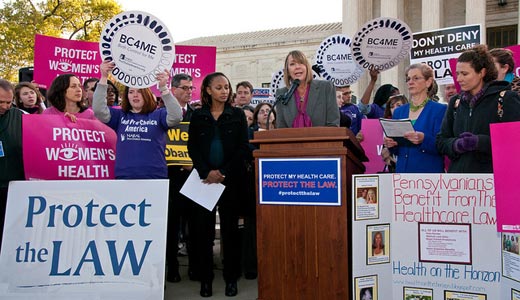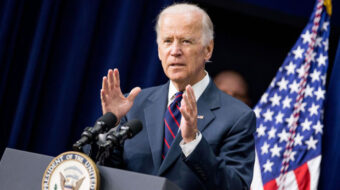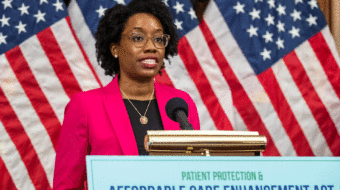
Health care reform is on track now that President Obama has been reelected. But the struggle to fully implement the Affordable Care Act (ACA) is heating up on two fronts: expanding Medicaid coverage to people not eligible now, and setting up state health insurance exchanges to provide information and help to individuals and small businesses buying health coverage.
Some states are already well along in the process, while others waited to see how the election would come out. Still others are resisting setting up exchanges and expanding Medicaid. http://www.ncsl.org/issues-research/health/state-actions-to-implement-the-health-benefit-exch.aspx
Last summer’s Supreme Court decision upholding Obamacare left it up to the states, whether to expand Medicaid coverage to people with incomes up to 133 percent of the poverty level, or about $14,000 a year for individuals and $29,000 for a family of four. Millions of uninsured people nationwide could be covered under the Medicaid expansion.
Governors in several states, including Florida, Georgia, Louisiana, Mississippi, South Carolina and Texas, have said they won’t expand Medicaid, even though the federal government will pay all the costs for newly eligible people for the first three years, and 90 percent permanently.
Some are getting push-back from reform supporters in their states. According to the Associated Press, Louisiana’s Republican Governor Bobby Jindal, who called the program too expensive even though the feds will pay most of the cost, and said private insurance would do a better job, is now being pressed by the state’s Democratic Party and others to change his mind.
In Florida, Republican Gov. Rick Scott and legislative leaders are thinking twice about the issue, the Miami Herald reported. Scott, who had earlier said expanding Medicaid was too expensive, acknowledged in a Nov. 9 statement, “Just saying ‘no’ is not an answer.” Meanwhile, all of the state’s hospitals and many physicians want to see Medicaid expanded.
Undermining the argument about excessive cost, the Center on Budget and Policy Priorities issued a report last summer, showing that state costs for implementing the ACA will be small.
“The Congressional Budget Office (CBO) estimates that expanding Medicaid will add very little to what states would have spent on Medicaid without health reform, while providing health coverage to 17 million more low-income adults and children,” the report said.
And what states pay to cover uninsured poor people will also go down as fewer people are without coverage.
Many states are also still deciding whether to set up their own health insurance exchanges.
The exchanges will offer a choice of different health plans to individuals who buy their own coverage and to businesses with less than 100 workers. The exchanges will certify the plans they offer, and help will be available to people who cannot afford coverage.
The National Conference of State Legislatures says that as of last month, 15 states and the District of Columbia plan to run their own exchanges, while seven want the federal government to run the exchange in their state, and three want to partner with the feds. Half the states have still not decided.
California, the first to start setting things up, announced late last month that its exchange will be called “Covered California.” The legislature will hold a special session next month focusing on implementation.
In a post-election blog post, Anthony Wright, executive director of Health-Access California, said thousands of Californians with pre-existing conditions now won’t have to worry their coverage will be taken away, and millions more will be able to get full Medi-Cal (state Medicare) coverage.
Wright also noted that no U.S. senator who voted for the ACA lost on Nov. 6. In California’s Congressional delegation, he said, no Obamacare supporter lost, but three opponents were poised to do so – two of them to doctors.
Photo: March 2012 demonstration in favor of Obamacar. SEIU International // CC 2.0












Comments